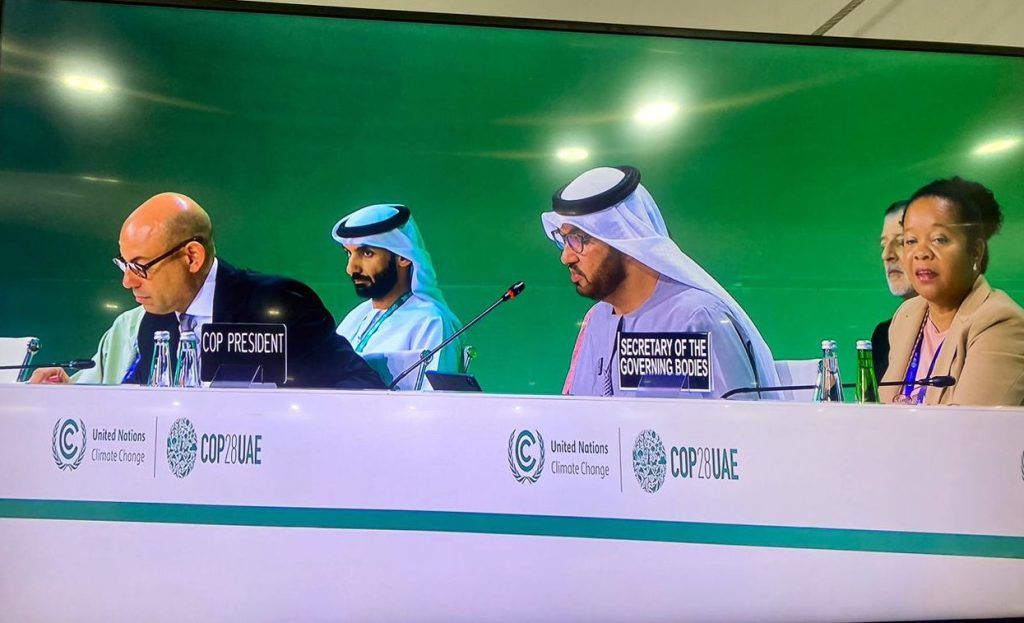The COP28 climate summit held in Dubai, United Arab Emirates, on Wednesday, approved the first-ever call for the world to transition away from fossil fuels.
The summit tackled the top culprit of climate change after years of avoidance, although at-risk countries said far more action was needed.
After thirteen days of talks and several sleepless nights in a country built on oil wealth, the president of the UN-led COP28 summit struck a gavel to signal that the world had reached a consensus.
“You did step up; you showed flexibility; you put common interest ahead of self-interest,” said COP28 president Sultan Al Jaber, whose role as head of the United Arab Emirates’ national oil company raised suspicion among many environmentalists.
Describing the deal as bringing “transformational change” to climate, Jaber said of the UAE’s diplomacy: “We have helped restore faith and trust in multilateralism, and we have shown that humanity can come together.”
European Union climate chief Wopke Hoekstra called the agreement “long, long overdue,” saying it had taken nearly 30 years of climate meetings to “arrive at the beginning of the end of fossil fuels.”
However, with the UN talks requiring consensus, Jaber carefully calibrated the text to bring onboard countries from islands that fear extinction from rising sea levels to oil giant Saudi Arabia, which led the charge to keep exporting its petroleum.

Toughening language from an earlier draft that was roundly denounced by environmentalists, the agreement calls for “transitioning away from fossil fuels in energy systems in a just, orderly and equitable manner.”.
It calls for expanding action “in this critical decade” and recommits to no net greenhouse gas emissions by 2050 in hopes of meeting the increasingly elusive goal of checking warming at 1.5 degrees (2.7 Fahrenheit) above pre-industrial levels.
The planet has already warmed by 1.2 degrees and scientists say 2023 will likely be the warmest in 100,000 years as storms, droughts and lethal wildfires expand around the world.


